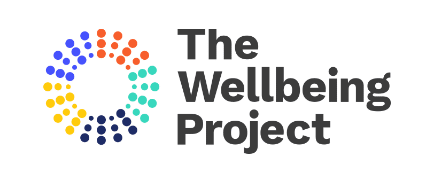27 January 2025
Awareness Days: Practical Tips for HR Teams
Awareness days - like World Mental Health Day or International Women’s Day - are excellent opportunities to highlight important issues, boost employee engagement and reinforce company values. However, simply acknowledging a date on the calendar isn’t enough. In this guide, you’ll learn how to make awareness days a meaningful part of your overarching people strategy.
Align to Your Wellbeing Strategy
Before planning specific activities, take a step back to ensure that your approach to awareness days fits into your overall wellbeing framework. Ask yourself:
- How does this awareness day support our broader wellbeing objectives?
- Which aspects of our wellbeing strategy (e.g. stress reduction, inclusivity, resilience) can be amplified through targeted events?
- How can we integrate these events into our ongoing efforts to foster a supportive, healthy workplace culture?
By answering these questions, you ensure that every awareness day is not an isolated event, but a building block toward a cohesive and sustainable wellbeing programme.
Start With Intent
With alignment in place, begin by setting a clear intention. Determine what you want to achieve with each awareness day. Are you aiming to raise awareness, change behaviours, or foster deeper connections among employees? Gathering insights—perhaps through a quick survey—can help you tailor your approach so that initiatives resonate with your workforce.
“Intentionality plays a crucial role in fostering authentic engagement. Employees are more likely to connect with initiatives that have a clear purpose. Without this focus, awareness days can feel performative, undermining the engagement you’re looking to create.”
Sandra Ordel, Senior Business Psychologist
Assemble Your Team
Successful awareness days rarely happen in isolation. Define roles and responsibilities so everyone collaborates effectively:
- HR: Lead the planning process, ensuring that activities align with broader business goals and policies.
- Wellbeing Teams: Create engaging content and maintain consistent communication channels..
- Wellbeing Champions: Encourage participation at the grassroots level, sharing information and insights with their teams.
- Senior Leaders: Set the tone by visibly supporting events and sharing personal stories that underline the initiative’s importance.
Plan Ahead
Identify key awareness days early and add them to your annual calendar. This foresight ensures you have sufficient time to allocate resources, involve key stakeholders, and develop a clear timeline. Advanced planning minimises last-minute hurdles and sets the stage for meaningful, well-organised celebrations.
Communicate Effectively
No matter how well you plan, poor communication can derail even the best initiatives. Build anticipation and encourage participation by:
- Using Multiple Channels: Leverage emails, intranet updates, posters, team huddles or dedicated Slack groups.
- Starting Early: Use sneak peeks, short surveys or teaser content to spark interest well before the event.
- Maintaining Consistency: Ensure that the message remains clear and cohesive across all platforms.
Bring in Experts
Enhance the credibility and impact of your awareness day by inviting both external and internal experts:
- Guest Speakers: Invite specialists who can share unique insights or cutting-edge research.
- Non-Profit Collaborations: Partner with organisations that can offer fresh perspectives and additional resources.
- Internal Expertise: Empower employees who have relevant knowledge or experience to lead sessions or discussions.
- Expert-Led Webinars & Workshops: Organise wellbeing webinars and workshops that encourage practical learning and deeper engagement.
Create Memorable Activities
The right activities can transform an awareness day from a routine event into a lasting experience:
- Skill-Building Sessions: Offer workshops on stress management during Mental Health Awareness Month or unconscious bias training on Diversity Days.
- Friendly Competitions: Organise team challenges (e.g. a sustainability contest or fitness challenge) to encourage collaboration.
- Expert Panels: Combine insights from both internal and external voices to provide diverse perspectives.
- Themed Socials: Arrange cultural potlucks, mindfulness sessions, or other gatherings that resonate with the day’s focus.
- Information Booths: Set up booths with informative materials, interactive displays and representatives who can answer questions and provide resources related to the awareness day.
- Volunteer Opportunities: Coordinate group volunteer events that align with the awareness day’s theme, such as community clean-ups for Earth Day.
Measure Success
Evaluating your awareness day initiatives is key to understanding their impact and refining future events:
- Event Attendance: Track the number of employees participating in workshops, seminars, or other activities.
- Resource Usage: Monitor downloads, video views, and intranet visits related to event materials.
- Qualitative Feedback: Collect insights via surveys or focus groups to assess employee experiences and gather suggestions for improvement.
- Outcome Evaluation: Use data—such as improved wellbeing survey scores or behavioural changes—to measure success.
- Share Insights: Communicate results with stakeholders and employees, celebrating successes and identifying areas for growth.
Avoid Common Pitfalls
To ensure your awareness day initiatives deliver lasting impact, steer clear of these common pitfalls:
- Tokenism: Avoid activities that feel superficial or “for show.” Instead, ensure every initiative has a clear, purpose-driven connection to your broader strategy.
- Overloading the Calendar: Too many events can overwhelm employees. Focus on quality and meaningful participation.
- One-Size-Fits-All: Tailor each event to the specific theme and context, rather than using a generic approach for all awareness days.
- Lack of Follow-Through: Sustain the conversation beyond the event by sharing resources, reinforcing key messages, and integrating initiatives into everyday practices.
Final Thoughts
Awareness days are powerful tools for building a vibrant, inclusive and supportive workplace culture. By aligning these days with your overall wellbeing strategy, planning with intent and measuring success along the way, you can transform what might be seen as simple calendar dates into catalysts for genuine, lasting positive change. With the right blend of teamwork, creativity and expert insight, your awareness day initiatives will not only engage employees but also strengthen the very fabric of your organisational culture.

Author Bio: Sandra Ordel is a Senior Business Psychologist specialising in workforce resilience and neuropsychology. She supports organisations worldwide to build resilient teams and cultures of healthy performance.
Download the wellbeing calendar 2025 and discover all the key wellbeing dates.

Download the wellbeing calendar 2025 and discover all the key wellbeing dates.








